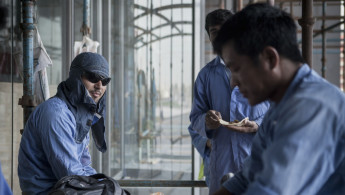Community lends helping hand to Qatar's unpaid migrant workers
Hundreds of migrant workers who have not been paid by their Gulf employers for months, are receiving a lending hand by Indian community leaders in Qatar.
Construction staff working at the Doha offices of the UAE-based ETA group were surviving off credit from their local shops before contacting the Indian Community Benevolent Forum (ICBF) in the Gulf state.
“Of our total database, some 50 to 100 are active donors who extend help in times of crisis such as this one,” Arvind Patil, president of ICBF told Doha News.
“I was approached by one of the unpaid employees of ETA and I have raised the matter with the Indian Embassy and asked the employees to attend the open house that is likely to be held the following weekend,” he added.
The Indian embassy in Doha is also involved in the ongoing dispute but confirmed it had received no response from the company, according to reports on Gulf News.
The reports come despite a Wage Protection System that was rolled out across Qatar last November which threatens sanctions against companies that do not pay employees’ salaries on time.
Under the new system, workers are expected to be paid either twice a month or monthly, with wages electronically transferred to their bank accounts.
Companies that do not pay salaries on time could face fines of up to 6,000 Qatari riyals ($1,650), a ban on recruiting new staff and bosses could potentially be jailed.
The ETA group was already been blacklisted by the WPS for violating the terms, the Gulf News reported.
GCC countries face regular criticism from international rights group who accuse them of treating migrant workers – especially those from South Asian nationalities – poorly.
Earlier this year, a Qatari-funded report showed domestic workers in the state work longer hours than most people, while earning the least.



